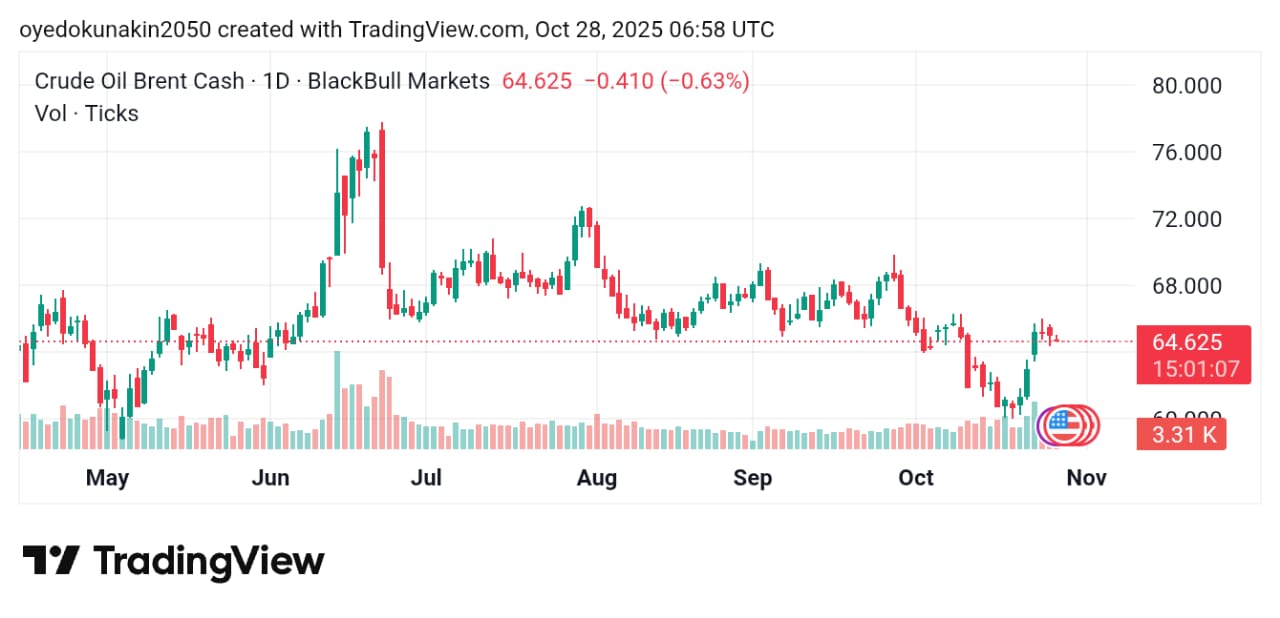
Akintunde Oyedokun
Research Analyst
Oil prices slipped Thursday as a temporary U.S.–China trade deal eased tensions but failed to lift market sentiment. Brent crude fell 1.1% to $64.19, and WTI dropped to $59.80. Despite a Fed rate cut boosting economic outlook, both benchmarks are set for over 3% monthly losses amid oversupply worries. U.S. crude inventories declined by 6.86 million barrels, while investors await the November 2 OPEC+ meeting for a possible supply hike.
Germany’s Economy Stalls in Q3 as Export Slump Persists
Germany’s economy recorded zero growth in the third quarter, held back by weak exports and sluggish demand. A slight uptick in business investment prevented a recession after a 0.3% decline in the previous quarter.
Unemployment remains high at 6.3%, and consumer confidence continues to fall amid inflation and job worries. Economists warn that government spending plans may offer only limited relief without deeper reforms.
France’s Economy Defies Political Unrest with Strong Q3 Growth
France’s economy expanded by 0.5% in the third quarter, surpassing expectations as booming aerospace exports and higher corporate investment offset weak consumer spending and political turmoil. Despite a government shake-up and credit rating downgrades, Finance Minister Roland Lescure praised the resilience of French businesses. Economists said the strong performance shows France’s economy remains relatively insulated from political instability.
Botswana Hikes Interest Rate to 3.5% to Curb Liquidity Crunch
Botswana’s central bank raised its key interest rate by 160 basis points to 3.5% to ease a liquidity squeeze caused by weak diamond exports and rising government borrowing. The move aims to strengthen monetary policy transmission as the economy faces another year of contraction. Governor Cornelius Dekop said banks must not raise prime lending rates further. Moody’s recently downgraded Botswana’s credit rating due to higher debt and the diamond market slump. Inflation rose to 3.7% in September but remains within the 3%–6% target range.
Nigeria Imposes 15% Fuel Import Duty To Support Domestic Refining
Nigeria has approved a 15% import duty on petrol and diesel to protect domestic refineries and reduce reliance on cheaper imports, according to a presidential memo. The policy, part of broader fiscal reforms ahead of 2026 tax changes, follows the removal of fuel subsidies last year. President Bola Tinubu approved the duty on October 21. The move aims to support Africa’s largest Dangote refinery, stabilize the downstream market, and prevent fuel shortages.










